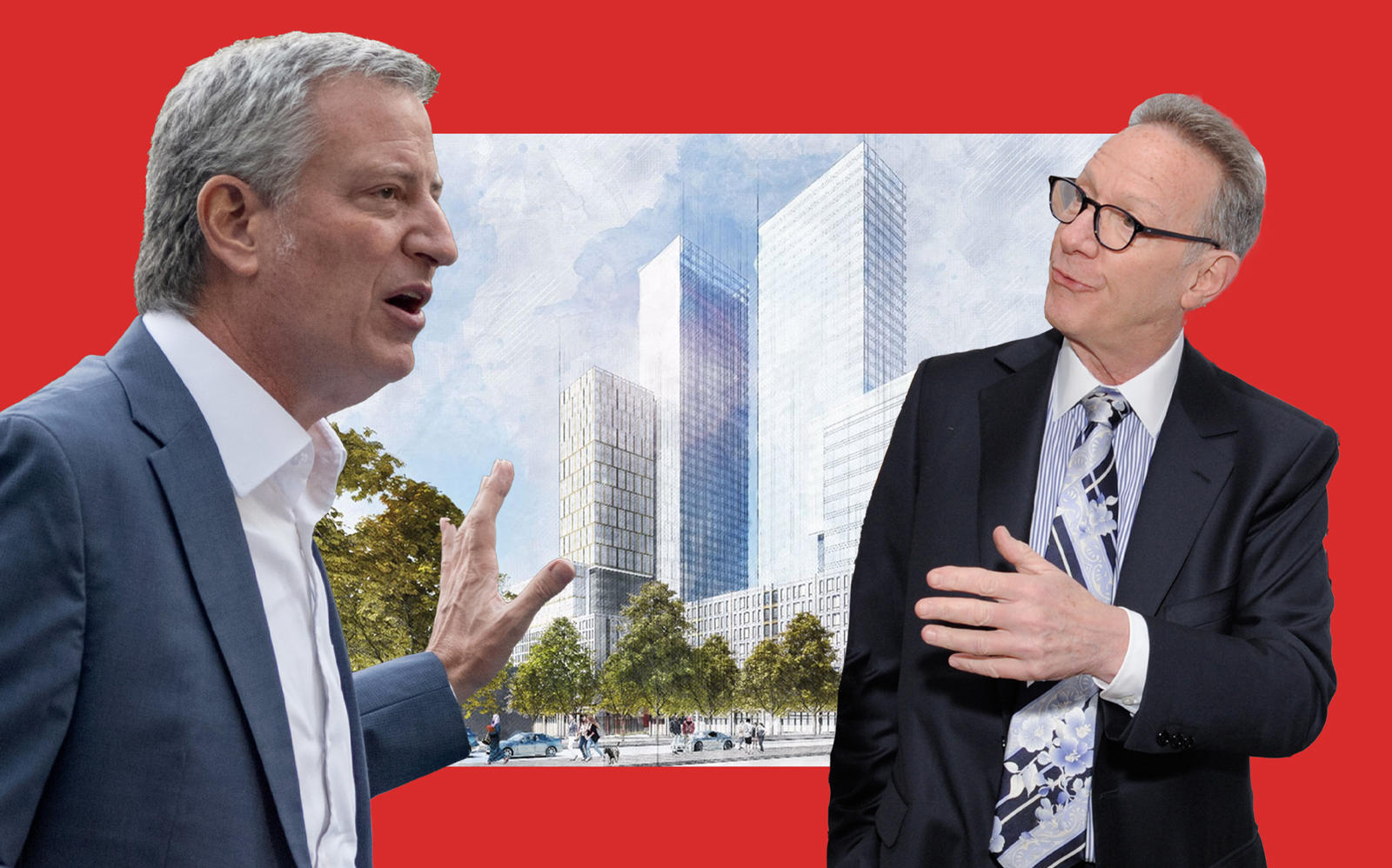UPDATED Dec. 22, 2:24 pm: On the darkest day of the year, Mayor Bill de Blasio withdrew his support for a residential project in Crown Heights that drew opposition for the shadows it would cast over the Brooklyn Botanic Garden.
De Blasio, who had backed the development all year because of its affordable housing component, told Gothamist Monday that he now opposes the plan by Bruce Eichner of Continuum Company to build two 39-story residential towers in Crown Heights.
The plan was opposed by locals and advocates of the Botanic Garden. The two towers would rise over 400 feet at 960 Franklin Avenue, much taller than any of the developments nearby.
The news shocked opponents and supporters alike, as de Blasio had endorsed the project Feb. 7 when a critic of it called him on Brian Lehrer’s radio show.
“I don’t think it ruins the garden forever. I just don’t. I don’t take that position,” the mayor said at the time. “I would love it if we could have a city that could be a city for everyone and affordable and we could keep some of the exact scale and aesthetics we had previously. I would love it if we could achieve those things, but we’re in this new world.”
But in a statement yesterday, de Blasio said the project was “grossly out of scale with the neighborhood” and would inhibit plant growth at the garden.
That effectively kills the project in its current form because the mayor could veto the rezoning it needs from the City Council. Eichner now faces the prospect of negotiating a project design acceptable not only to the local Council member, Laurie Cumbo, but also to the mayor.
The mayor’s statement was stunning not only because it reversed his previous position, but also because mayors rarely take a public stance on a project still being negotiated by the local Council member.
The project’s opponents were waging a legal battle against the city, complete with research about the effects that the buildings’ shadows would have on the garden. They also said the height and density of Eichner’s buildings would be unprecedented in the brownstone neighborhood and would change the character of the neighborhood.
De Blasio has historically put affordable housing considerations before concerns about building heights — and plants, for that matter.
In his February radio interview, the mayor said refusing to change the low-scale character of neighborhoods would “take another step towards the gilded city … that only those who are doing very well can afford to live in.”
He continued, “When it comes to protecting New York, it is about the people first. It’s not about the aesthetics and the buildings, it’s about the people. And if working class people cannot afford to live here, it will not be the same New York City.”
Eichner had said the project would have helped reduce the city’s need for affordable housing. About half of the 1,578 units of housing would be below market rate, according to the developer.
The mayor’s reversal was also a blow to unions, who were in line to build, finance and work in the project.
“This is an unfortunate turn of events,” Gary LaBarbera, president of the Building and Construction Trades Council of Greater New York, said in a statement. “If we want to recover from this economic crisis, we need to encourage progress and economic development, and a project that commits to a 100 percent union labor force and creates hundreds of units of affordable housing is exactly the type of equitable economic development we need to turn the corner on this crisis.”
But de Blasio said in his statement Monday that the Franklin Avenue development “would harm the research and educational work carried out by one of this city’s prized cultural institutions.”
This story has been updated to include a statement from Gary LaBarbera.
